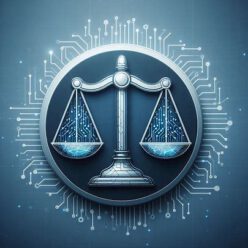The German Federal Court of Justice defined the term “technical teaching” in the 1960s, with which the Court agrees in G1/19. The technical teaching is implied in the term “invention”. The following chapter gives a brief overview of the above-mentioned definition and builds a bridge to data regarding technicality, which is an essential part of computer-implemented inventions. This information is based on the decision of the Enlarged Board of Appeal G1/19, points 75 to 77.
Red dove decision
The EPC, like national patent laws, does not define “invention” or “technical”. However, from Article 52 EPC, it can be concluded that only “technical” inventions are patentable (“in all fields of technology”, see also G 2/07, OJ EPO 2012, 130, Reasons, point 6.4.2.1).
In G 2/07, which concerned a referral in the field of biotechnology, the Enlarged Board cited the definition of an invention given by the German Federal Court of Justice (“Bundesgerichtshof”) in the latter’s “Rote Taube” decision of 27 March 1969 (Case X ZB 15/67). According to this decision, the term “invention” implied a technical teaching, characterised as
“a teaching to methodically utilize controllable natural forces to achieve a causal, perceivable result” (“eine Lehre zum planmässigen Handeln unter Einsatz beherrschbarer Naturkräfte zur Erreichung eines kausal übersehbaren Erfolgs”),
see the German original in GRUR 1969, 672, point 3, and the English translation published in 1 IIC (1970), 136).

EBoA refrains from putting forward a definition for “technical”
In G 2/07, the Enlarged Board held that this standard “still holds good today and can be said to be in conformity with the concept of ‘invention’ within the meaning of the EPC” (G 2/07, Reasons, point 6.4.2.1, fourth paragraph). The “Rote Taube” decision predates the non-exhaustive list of exclusions from patentability in Article 52(2) EPC. However, the Enlarged Board, when referring to “Rote Taube”, must have considered that the negative definition resulting from the list of exclusions in the EPC did not contradict the findings in “Rote Taube”. In accordance with its earlier case law and with the approach chosen by the legislator, the Enlarged Board in G1/19 refrains from putting forward a definition for “technical”.
Cognitive content of data
In addition to the abstract explanations above, a bridge should now be built to data, which is an essential component of computer-implemented inventions. It is generally recognised in the case law of the boards of appeal that the cognitive content of data is not technical in nature (see e.g. T 1000/09, Reasons, point 7). The idea of treating information as part of the concept of “forces of nature” did not take root (see Zech in “Methodenfragen des Patentrechts” (Mohr Siebeck, Tübingen 2018, 137, 140)). The fact that the list of “non-inventions” in Article 52(2) EPC was discussed but not changed in the course of the EPC 2000 revision project supports the position that the term “technical” must remain open, not least in anticipation of potential new developments.
